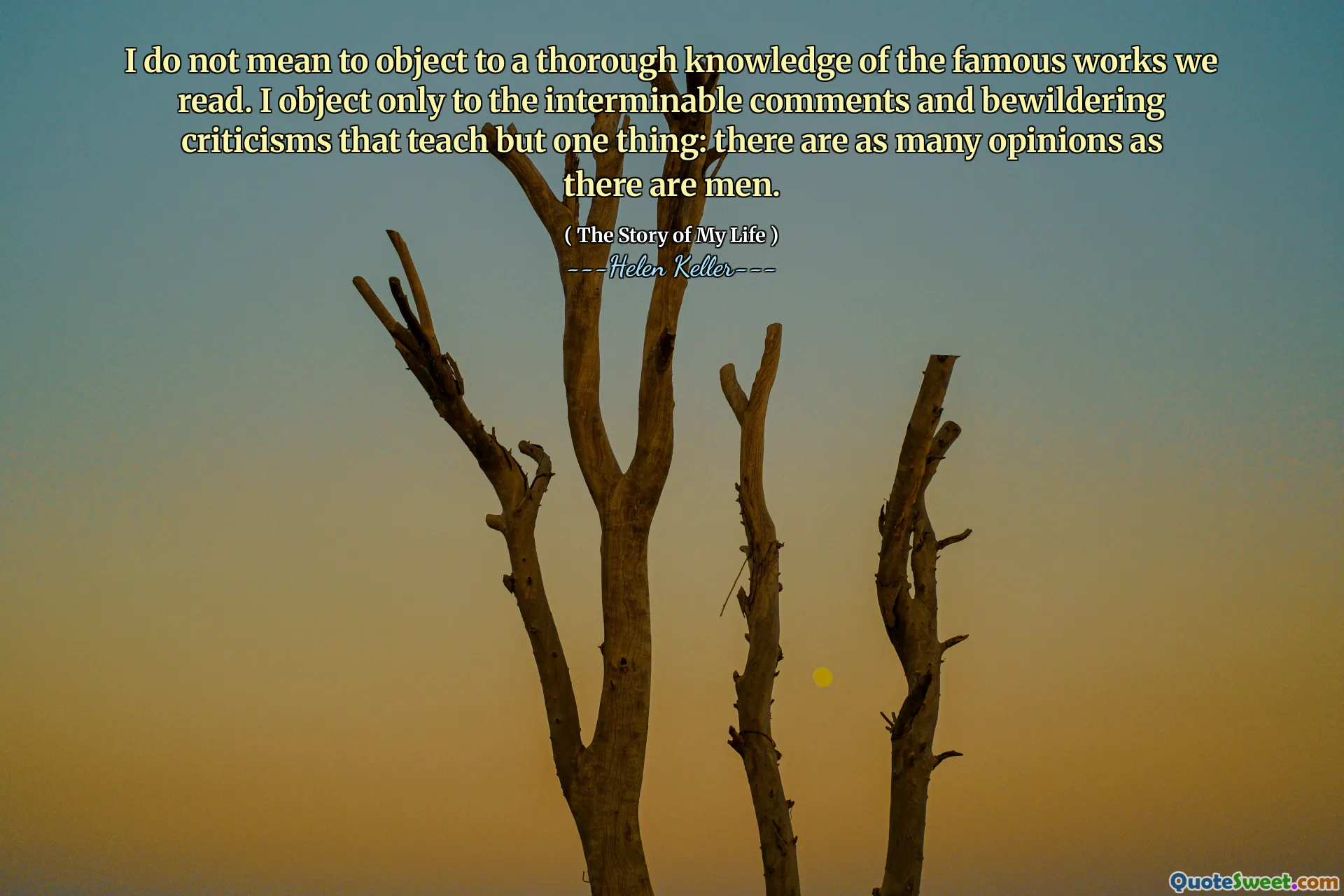
I do not mean to object to a thorough knowledge of the famous works we read. I object only to the interminable comments and bewildering criticisms that teach but one thing: there are as many opinions as there are men.
Helen Keller's insight underscores a fundamental tension in the world of literature and intellectual discourse. While acquiring a thorough knowledge of renowned works is essential for developing a comprehensive understanding and appreciation of literature, the proliferation of endless commentary and varying criticisms can become overwhelming and even distracting. This quote highlights how, despite our collective efforts to interpret and analyze, individual perspectives will inevitably differ—sometimes to the point of confusion. It's a reminder that opinions are inherently subjective, shaped by personal experiences, cultural backgrounds, and individual interpretations. Moreover, Keller’s words suggest that criticism, while valuable, should not obscure our primary goal: genuine understanding and personal connection with the material. Vigilance is needed to avoid turning rich literary experiences into convoluted debates that inadvertently diminish the essence of the works themselves. This makes us reflect on the importance of balancing scholarly critique with personal engagement. Recognizing diverse opinions enriches our comprehension, but it also invites humility in our own judgments. Keller’s reflection invites us to value sincere understanding over polemics, appreciating that multiple interpretations can coexist without undermining the integrity of the original work. Ultimately, this quote prompts us to approach literature—and by extension, any intellectual pursuit—with both curiosity and discernment, cherishing the diverse perspectives that make our engagement with ideas vibrant and meaningful.






